Like
Starring: Wynne Gibson, Pat O’Brien, Dudley Digges, Frances Dee, George Barbier, Russell Gleason, Lee Kohlmar, Cora Sue Collins, and Florence Britton
Directed by: Louis J. Gasnier, Max Marcin
Released by: Paramount Pictures
Runtime: 78 minutes
Release date: May 6th, 1932
Availability
The Strange Case of Clara Deane was a Paramount release, which means it is currently owned by Universal. Without any high-profile stars, there wouldn’t appear to be much interest in making it available. However, copies are floating around out there.
Proof That It’s Pre-Code
- Clara Deane is a designer of women’s teddies.
- During an argument over wedding formalities, Frank cracks about a friend, “He’ll know, he’s been married twice!”
- A character spends 15 years in prison for hard labor for a crime they didn’t commit. Justice!
- At least you seem to get a freebie murder out of the whole ordeal.
Clara Deane: True Love
“Your acts stamp you as a most unnatural mother.”
To the heavily female audiences of the pre-Code era, maternal misery was box office gold. Many stars of the time starred in tearjerkers that told tales of women forced apart from their offspring, from Ruth Chatterton in Frisco Jenny to Constance Bennett in Rockabye to Claudette Colbert in Torch Singer. These and many other films contrived scenarios that saw doting moms have to give up their children only to meet later. It’s an easy tearjerker premise, all the yearning and motherly hope tied into the fates of big, dumb stupid men who just didn’t get it.

The Strange Case of Clara Deane is another entry into this mold with a couple unusual twists that set it apart. The most impressive item of the film is its star Wynne Gibson– whose Letterboxd page simply describes as “American actress”. Gibson’s tenure on the screen was often flighty or playful, but she melts into her role as a mother under duress here; once old-age makeup is applied for the film’s third act, she’s unrecognizable and startling.
Gibson plays the titular Clara Deane, a dress designer who becomes infatuated with Frank (O’Brien), who claims to work in insurance but operates more as a low level crook and gambler. Even when a cop (Digges) arrives to arrest Frank on their wedding day, Clara goes forward with the ceremony and manages to talk the cop out of it. But Frank is unchanged, and he opts to skip out on the birth of their child for a particularly fun hand of poker. Years go by, with Clara and her daughter Nancy (Sue Collins) still struggling with her husband’s erratic behavior until he makes one enemy too many and they have to flee town.

While on the run, Frank opts to knock over a gas station. Clara is unable to shake the police’s assertion that she was an accessory to the crimes. She is sentenced to hard labor (sidenote: we don’t get to see Clara railroaded in court, but whoever her lawyer was must have been an idiot.) and must leave her daughter. She emerges from prison desperate to find Nancy again (now a luminous Frances Dee), but finds both the cop and her ex-husband working at various contretemps to stop her.
I’ve seen this kind of story played out a number of times. In the 30s and early 40s, these tropes were ubiquitous. In a culture that saw motherhood as sacrifice, with women disempowered from anything outside of marriage and maternity, the idea of having that meaning ripped from you was high drama.

The highest wattage sequence of Clara Deane comes when the title character has to abandon her daughter to the an orphanage as she is being led off to prison. Wynne Gibson and Cora Sue Collins both play the moments to the emotional hilt, milking the moment for all its worth. I’ll just say it; I’ve seen a number of scenes like this over the years. This one made me cry. It’s touching stuff.
This comes down to two of the film’s big pros over other dramas of its ilk: the first is Cora Sue Collins, who is an excellent young actress. She is a natural, much different than the cherubic curliness of Shirley Temple but something stronger and more real. If all Collins did was cry or pout, nothing here would work. She is great at playing a child with all the forthright edges included; it’s no wonder she would be selected to play a young Norma Shearer or a young Garbo in Smilin’ Through and Queen Christina; she has an aura of strength without losing that spark of innocence.
(Necessary disclosure: I have met Cora Sue Collins and she kissed me on the cheek, so my impartiality here may be called into question. But also if you call my impartiality into question just because of this, go to hell.)

The second strength Wynne Gibson, who I’ve usually seen in light comedies. Gibson has one of the great ‘oh shit’ faces of the time and does a great transforming with age and regret, so much so I had to double check her filmography and figure out why her career never seemed to gain much traction. Unfortunately, while I’ve been watching movies from the early 1930s for over 10 years, critics in the early 1930s saw them in a far more condensed manner and fare like Clara Deane fought to stand out from its many brethren, despite Gibson’s ace acting.
There are other pluses in the film, from Pat O’Brien’s rather restrained performance as an out-and-out jerk to Dudley Digges and his character’s completely understandable motivation even as it only complicates and worsens matters. I also appreciated the film’s ending, which gives Gibson almost everything she wants and at last shows Clara Deane some sympathy for her sin of choosing to marry the exact wrong man.
The Strange Case of Clara Deane is a strange title for a movie that feels fairly typical plot-wise for its era. However, its strengths and quiet honesty make it a gem of this very narrow genre.
More Images
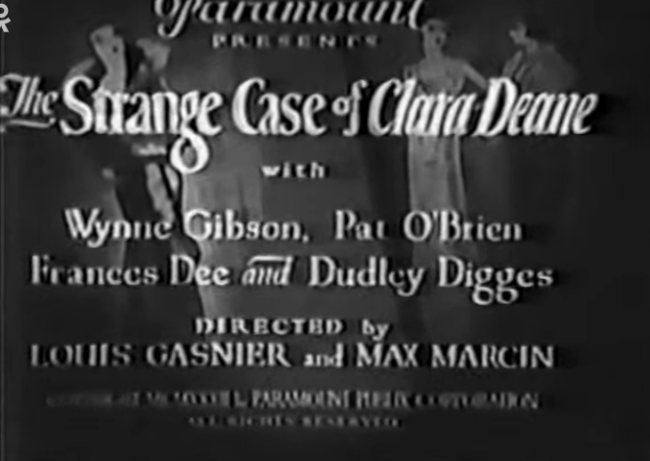
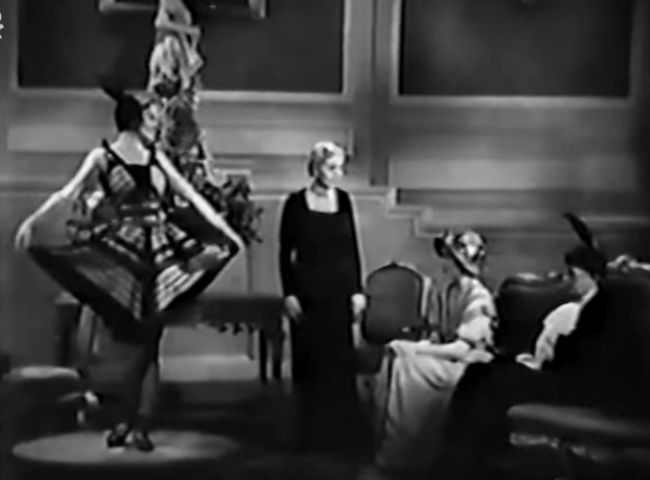
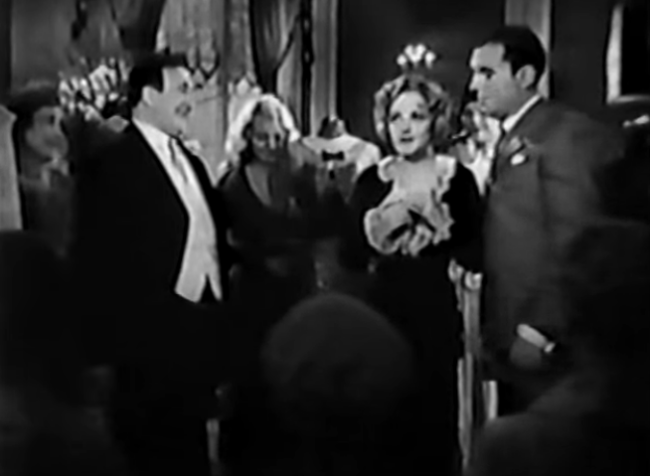
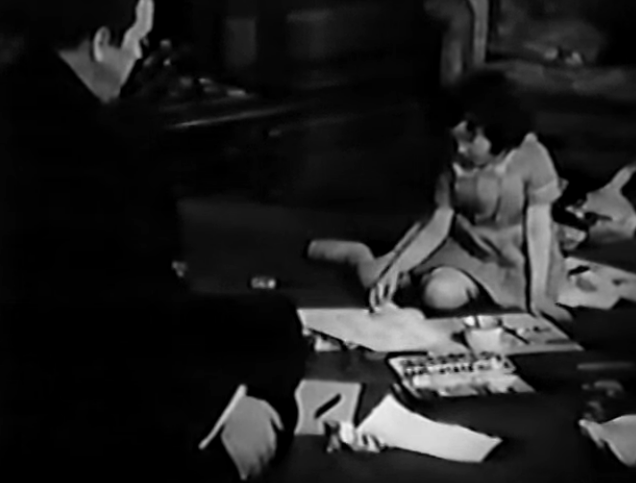
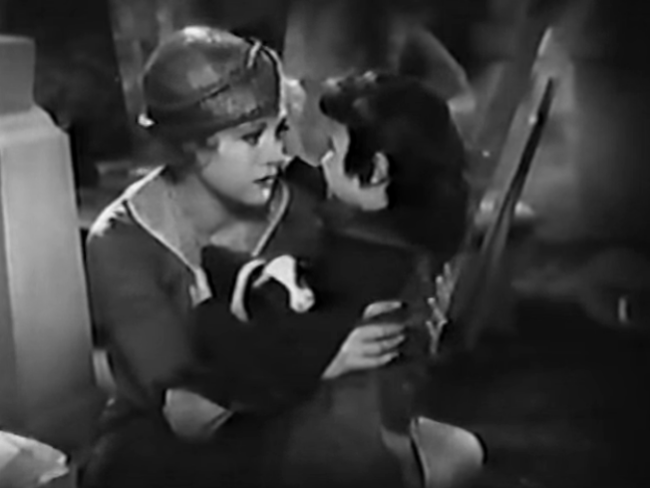
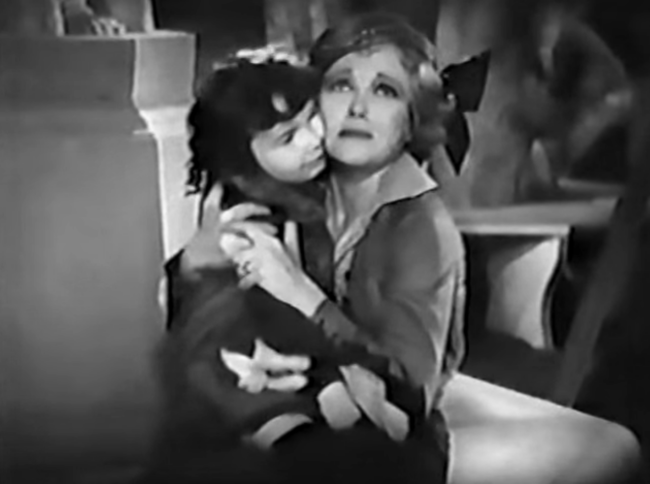
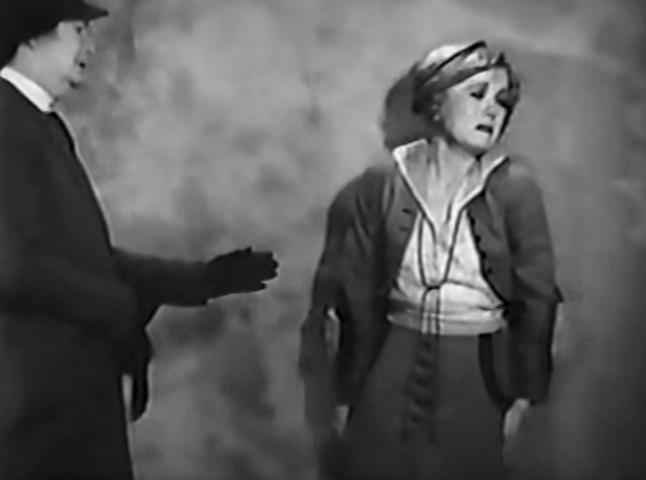
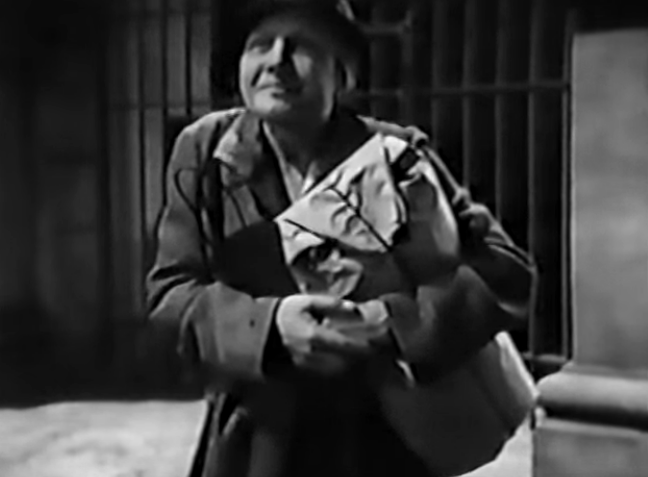
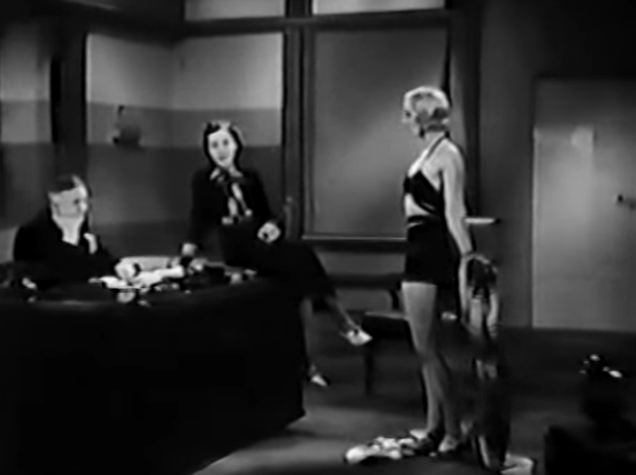
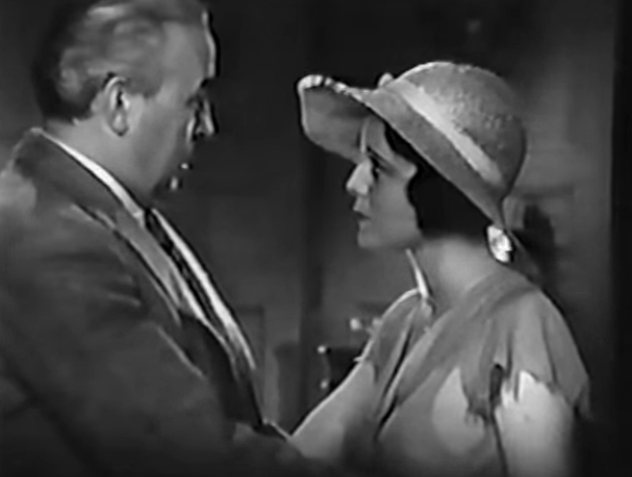
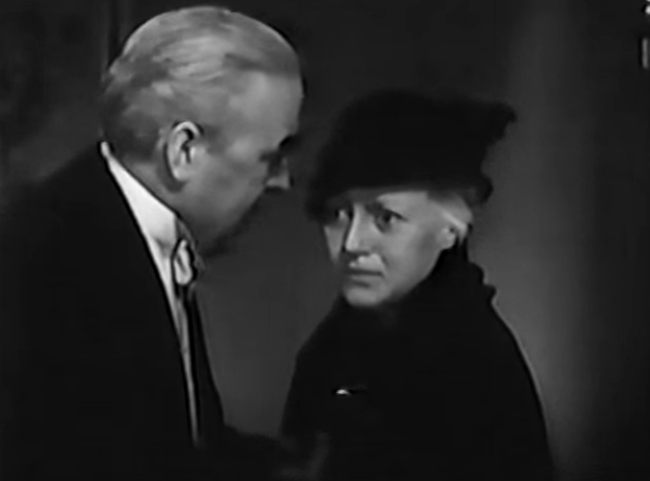
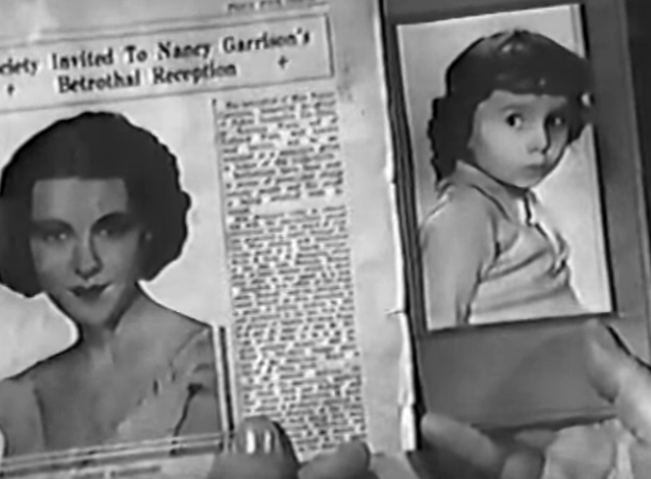
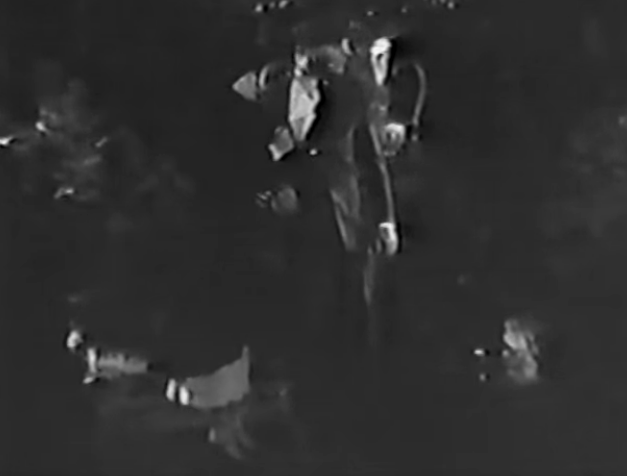
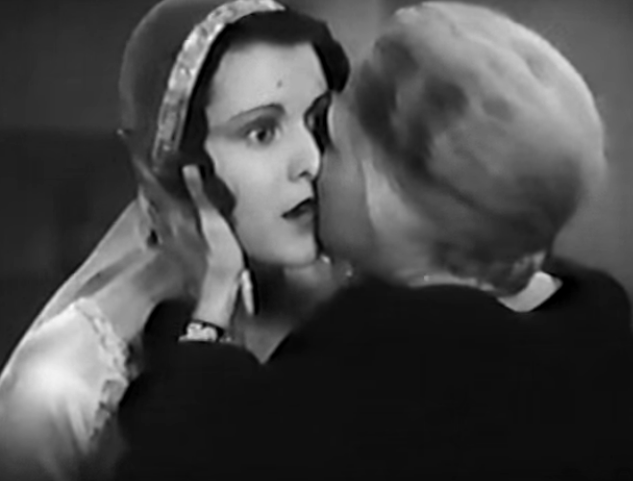
Trivia, Miscellany & Links
- According to Variety, the move is based on a play by Arthur M. Brilant.
- Digging around while researching this one, I learned Wynne Gibson was divorced twice and then became a ‘long-time companion’ to actress Beverly Roberts until Gibson’s death.
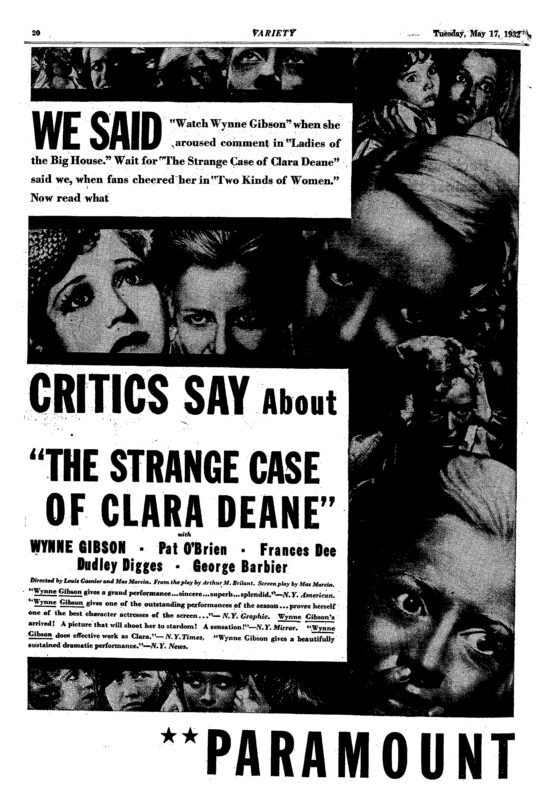
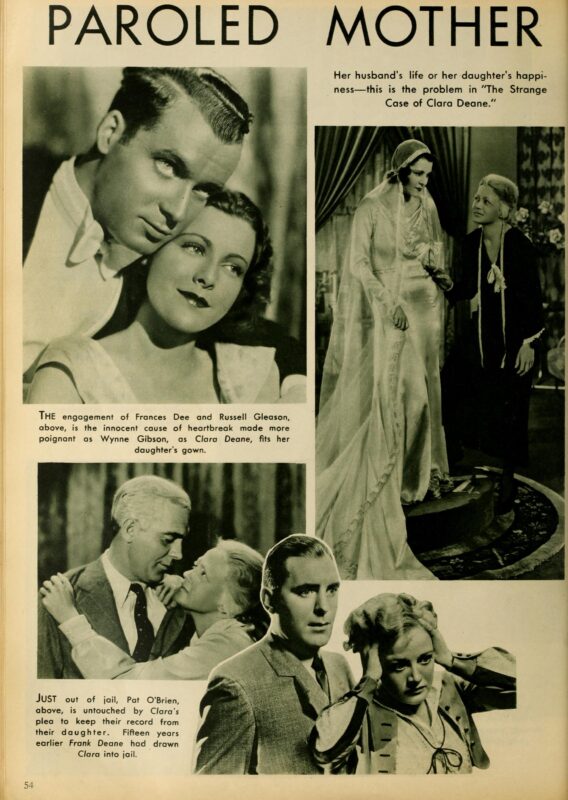
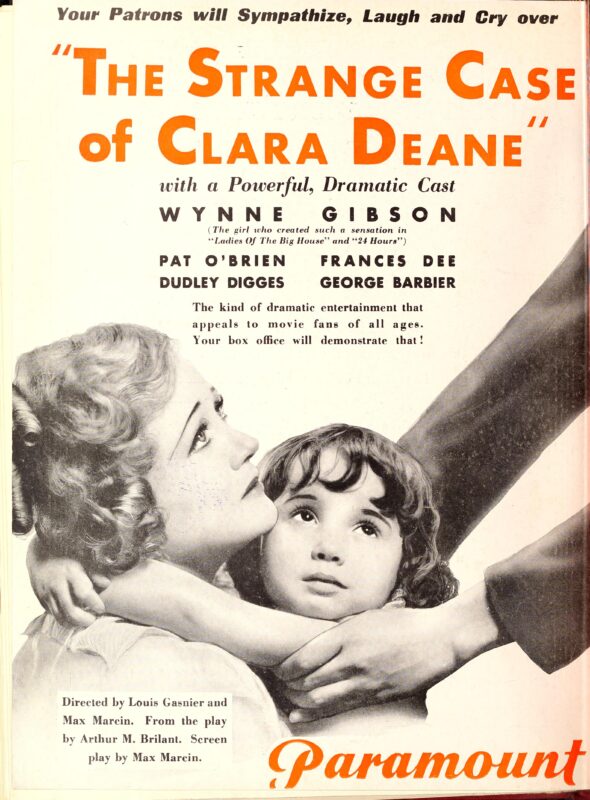
- I enjoyed this excerpt in American Cinematographer in an article about the difficulties of portraying period costumes. The film’s earliest sequence set in the early 1910s have to deal with making Clara a daring designer while still having her create items that would seem savvy to 1930s audiences, and the article discusses that kind of tension in films.
- A review from Motion Picture Herald:

- Motion Picture’s review is… less generous:
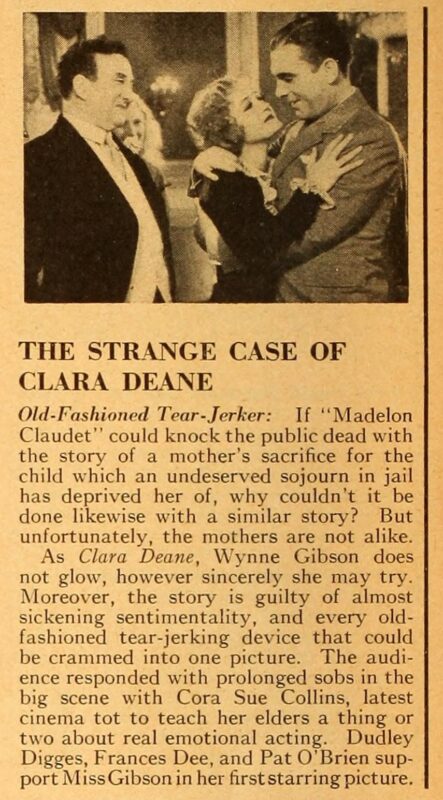
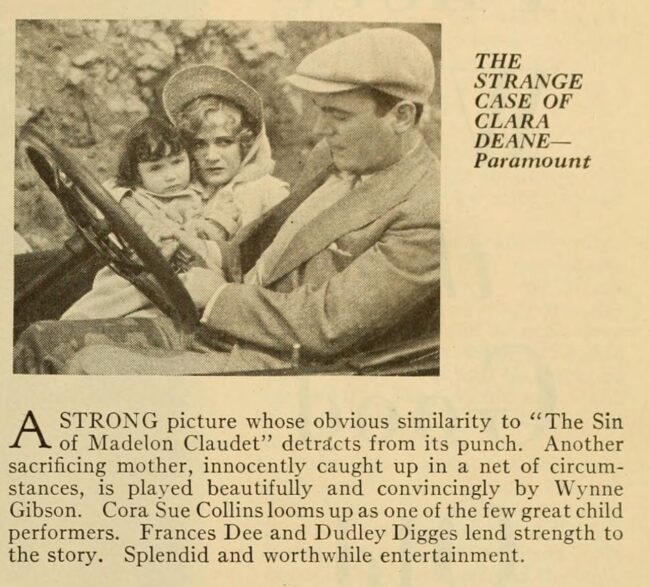
- And here’s Screenland (I like that the stills seem to be continuous between pieces somehow):
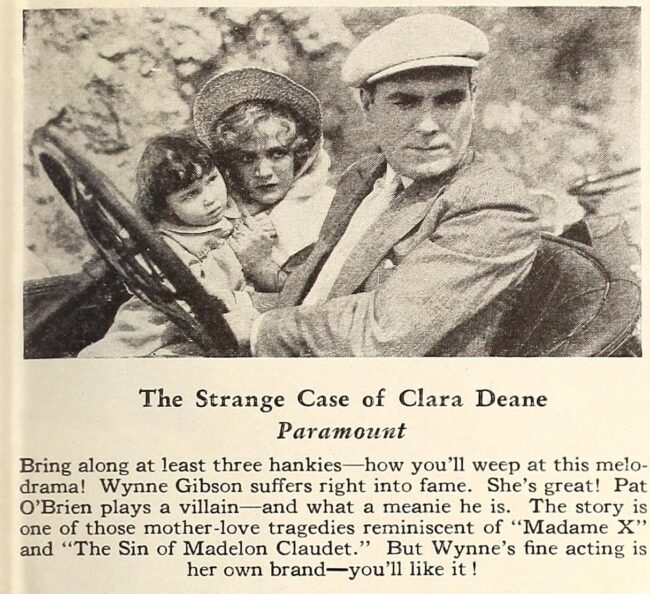
- I found a few other reviews, but they all hit the same notes: either the drama is tired or still works, plus some effusive praise for Wynne Gibson and Cora Sue Collins.
- Further links:
- One last note: I covered this one because a gentleman named Ben emailed me and told me that it was good. After the last few movies I covered here, it was a relief to get something like this to cleanse the palette. Thanks Ben!
What is Pre-Code?
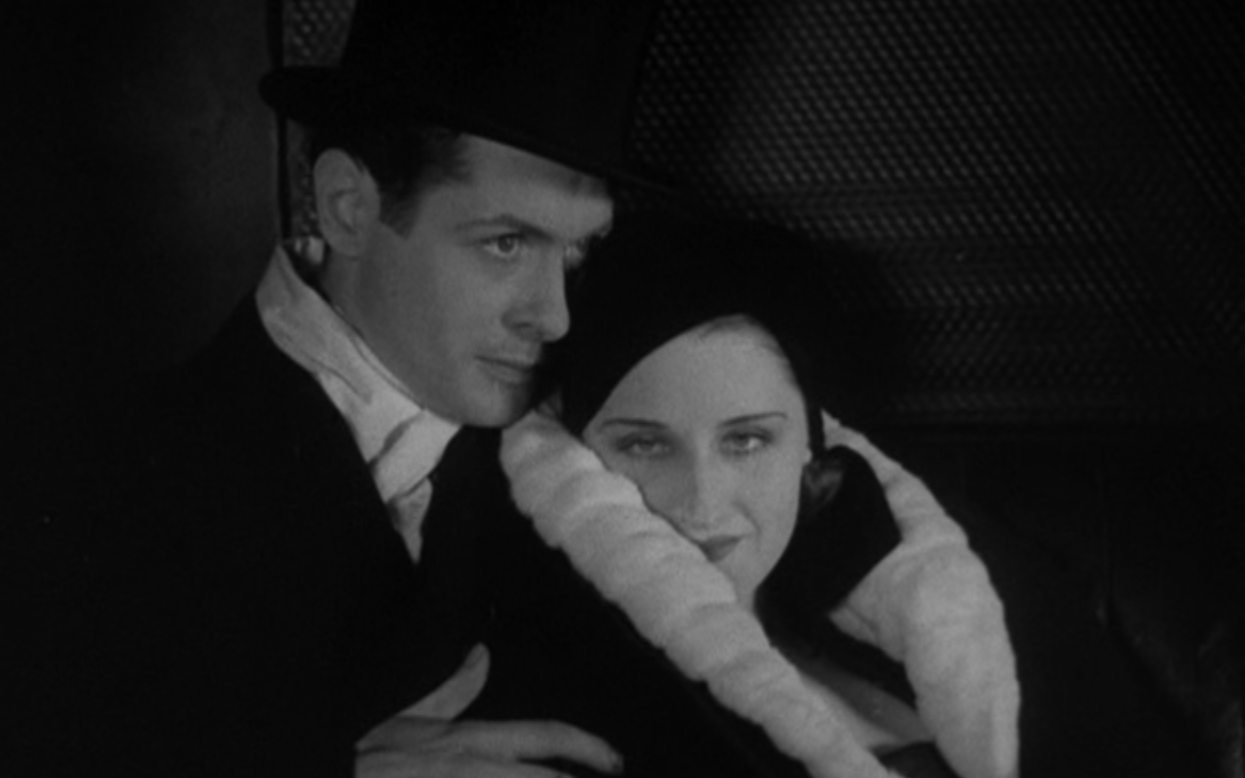
Click to learn more about pre-Code Hollywood, 1930-4, when movies were sexy, smart and sophisticated.
Index of Film Reviews
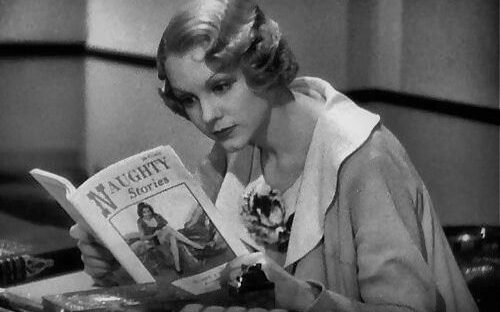
Browse all of the movie reviews on the site as well as schedules and pages that detail the world of pre-Code.
Explore the Pre-Code Era
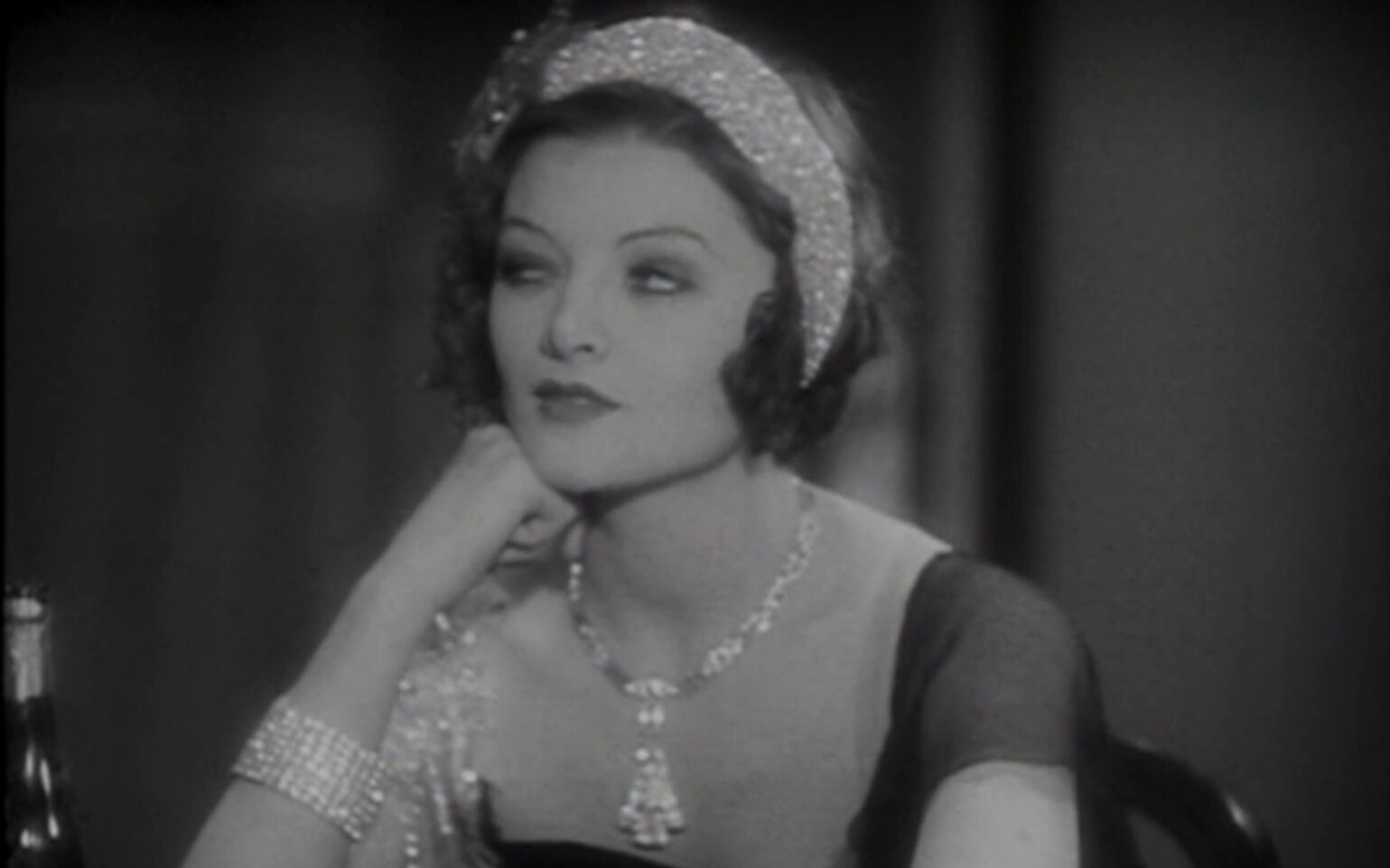
Dig through the pre-Code era through its highlights, its biggest hits, its essential films, and more.

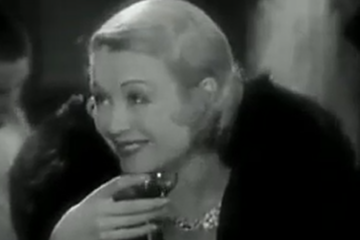

3 Comments
suznchaz · April 27, 2024 at 5:43 pm
CORA SUE COLLINS, the adorable little girl taken to the orphanage, is still with us! The Hollywood Heritage Museum celebrated her 97th birthday this month! https://dreamweaverarts.org/2024/04/14/the-golden-age-of-hollywood-mgm-turns-100-and-a-little-girl-turns-97/
Jeannie · April 28, 2024 at 5:51 pm
Danny, I can always rely on you to recommend the most interesting Pre-Codes. I’d never heard of this one, but I agree with everything you had to say about it. The orphanage scene was a gut punch, and the twist at the end was a swell surprise. Thanks for putting this on my radar! My husband and I really enjoyed the film (and your post, as always).
La Faustin · April 30, 2024 at 2:13 pm
I was looking for more palate cleansers and discovered, unless I’m wrong, that you haven’t yet reviewed ONLY YESTERDAY, which is a masterpiece. And currently on YT. Treat yourself!
Comments are closed.